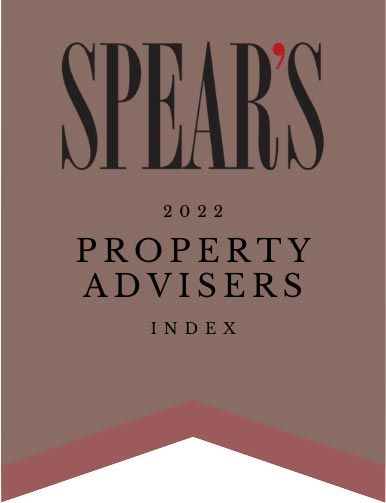As reported by the media, first time buyers have been particularly badly hit by the effects of the global pandemic, with high loan to value (LTV) mortgages becoming one of the first casualties of the COVID-19 crisis[1]. It’s common for first time buyers to approach the market with a 5% deposit and – in the main – 95% LTV mortgages have been restricted as lenders take a more cautious approach. However, all is certainly not lost and there are other options, such as joint borrower / sole proprietor mortgages (also known as joint applicants /sole proprietor) and guarantor mortgages. Here, our Mortgage Consultant Devraj Ray takes us through some of the most common challenges being faced by our first time buyer clients…
Can first time buyers still get a mortgage?
Firstly, it’s important to state that the situation is in a constant state of flux and products are shifting daily. Therefore, the most up-to-date picture can only be gained from speaking with your mortgage adviser. However, in general, what we’re seeing is a total restriction of any lending over 90% LTV, with the average sitting around 85% LTV for first time buyers.
Lenders are doing this for two main reasons. Firstly, they’re aware of the need to be cautious in a totally unique situation which currently doesn’t have a clear end point. Secondly, when it comes to first time buyers, lenders need to be responsible. A first-time buyer’s purchase will shape their financial well-being for many years to come and therefore it’s vital to get it right. Overstretching yourself financially and then landing in negative equity is a mistake you want to avoid.
What do first time buyers need to know about the post pandemic mortgage market?
The picture is a lot more positive than often painted by the media. Lenders haven’t left the market and there’s still a strong appetite to lend, albeit with more restrictions. Headlines such as the demise of gifted deposits being accepted by lenders have been slightly misleading[2] as many are still open to gifted deposits. If you’re relying on family assistance to get onto the property ladder, there are several other options available such as family mortgages, guarantor mortgages or joint borrower / sole proprietor mortgages.
That said, lenders will scrutinise your application more closely and, as well as offering lower LTVs, they may not accept some forms of income, such as bonuses. If you’re self-employed or freelance you’re also likely to face more scrutiny. Overall, the process is taking much longer so if you want to take advantage of the Stamp Duty holiday,[3] time is running out.
What is a joint borrower / sole proprietor (JB-SP) mortgage?
JB-SP mortgages allow the mortgage to be taken out in joint names, but ownership of the property remains in a sole name. This means you can take advantage of a second income to maximise your borrowing, but the other party on the mortgage does not retain any ownership of the property and therefore is not liable for second home Stamp Duty charges (ensure you consult with your solicitor to confirm the tax due, as everyone’s circumstances are different and require specific assessment).
Guarantor mortgages achieve the same result as a JB/SP mortgage, although are treated slightly differently from a regulatory perspective and tend to only be offered by a handful of small, regional building societies. It is quite likely that, over time, they will be completely phased out and replaced by joint borrower / sole proprietor mortgages instead.
This is usually an arrangement between close family – parents, siblings, or immediate relatives – as it requires a great deal of trust. Lenders will ensure due diligence is carried out before they will offer this type of mortgage to ensure both parties are crystal clear on the ramifications. One of our recent case studies recently featured in The Daily Telegraph – read here to find out more.
What are family mortgages?
These products allow older generations to either place their savings into a bank account as security for the mortgage (earning interest in the process). Alternatively, a family property can be placed as security against a loan, making these helpful options in certain circumstances.
What’s your advice for first time buyers?
- Have an expert in your corner. As the situation is ever-changing, it pays to have a close relationship with your mortgage broker. We have seen cases of some lenders bringing a product to market for just a few days before becoming oversubscribed, and a good mortgage adviser will be the first to know about these types of products. If they’re proactive, they will be able to keep you updated and let you know when a suitable product comes onto the market for you.
- Work with a broker who understands the wider picture. A good mortgage advisor should be looking at your whole situation – for instance, questioning how family support might help you borrow more. In a recent case, we helped two self-employed brothers achieve their goal of buying a £3.1m property by leveraging their mother’s multi-million-pound property portfolio and six figure income as security. Without our knowledge of the wider market, these clients would likely have lost the opportunity to buy their dream home.
- Certain brokers have a limited panel of lenders; therefore, it pays to work with a specialist with access to the wider market across banks, building societies, private banks and boutique lenders.
- Take a long, hard look at the housing market. We’ve recently seen a bubble caused by pent-up demand and the stimulation of the Stamp Duty holiday. Therefore, if that dream property is really going to place a strain on your finances, think about the day-to-day implications and have some sensible conversations with your loved ones and your mortgage adviser.
- Work with an ethical broker. A good mortgage adviser will never push you to overstretch your finances. Instead they should take an advisory role and guide you through the process, navigating the market and being honest if your target is not achievable right now. It could purely be a case of timing – we have several examples of buyers being disappointed, only to find a property more suited to their needs and finances at a later date.
What does the future hold for first time buyers?
Despite it being a more challenging market now, there are a lot of reasons to be enthusiastic about the future. Buying your own home is a part of British culture which is highly unlikely to disappear and therefore the Government will be looking to schemes which will stimulate home building, such as ‘retail to residential’ schemes in towns and cities to provide more housing stock.
If you’re looking to buy your first property, get in touch with us to find out how we can help you achieve your dream.
Your home or property may be repossessed if you do not keep up repayments on a mortgage or any other debt secured on it.
[1] https://www.zoopla.co.uk/discover/property-news/mortgage-availability-drops-to-10-year-low-as-covid-19-makes-lenders-cautious/
[2] https://www.which.co.uk/news/2020/08/which-banks-allow-first-time-buyers-to-be-gifted-deposits-by-their-parents/
[3] https://www.gov.uk/guidance/stamp-duty-land-tax-temporary-reduced-rates




















